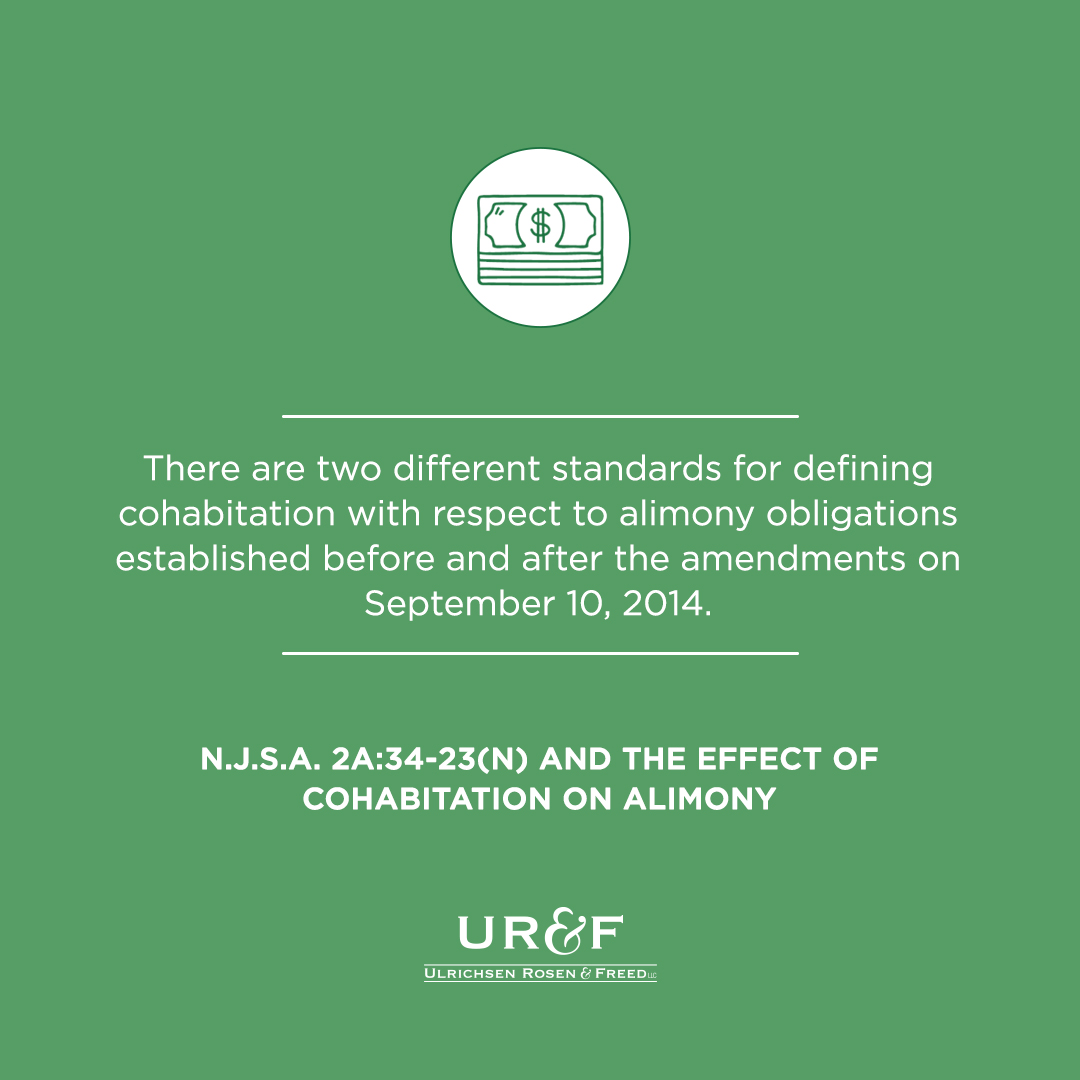N.J.S.A. 2A:34-23(n) and the Effect of Cohabitation on Alimony
On September 10, 2014, the New Jersey Legislature amended the alimony statute, N.J.S.A. 2A:34-23, to more broadly define cohabitation and outline the basis to suspend or terminate alimony. However, the amendments to the statute were not retroactive. As such, there are two different standards for defining cohabitation with respect to alimony obligations established before and after the amendments on September 10, 2014.
In both instances, cohabitation is defined as “a mutually supportive, intimate personal relationship in which a couple has undertaken duties and privileges that are commonly associated with marriage.” However, for alimony obligations established prior to September 10, 2014, the parties must reside together to establish a prima facie showing of cohabitation.
For alimony obligations established after September 10, 2014 to the parties do not need to reside together establish a prima facie showing of cohabitation.
In both instances, when assessing whether cohabitation is occurring, a court will consider the following: (1) Intertwined finances such as joint bank account and other joint holdings or liabilities, (2) Sharing or joint responsibility for living expenses; (3) Recognition of the relationship in the couple’s social and family circle; (4) Living together, the frequency of contact, the duration of the relationship, and other indicators of mutually supportive intimate personal relationship; (5) Sharing household chores; (6) Whether the recipient of alimony has received an enforceable promise of support from another person; (7) and all other relevant evidence.
Additionally, the amendments to the statute now only allow for a suspension or termination of alimony if the recipient of alimony cohabits with another person. Prior to the amendments in 2014, alimony obligations could be modified, suspended or terminated if the recipient of alimony was cohabiting with another person.
For questions regarding alimony modifications, cohabitation or any other family law related issue, please contact the attorneys of Ulrichsen Rosen & Freed LLC. Our firm is focused exclusively on the practice of family law and serves clients throughout New Jersey including clients residing in Mercer County, Somerset County, Hunterdon County, Burlington County and Middlesex County.


